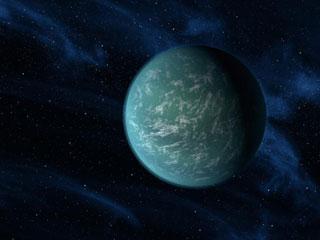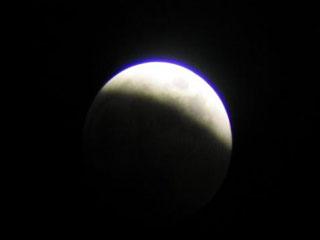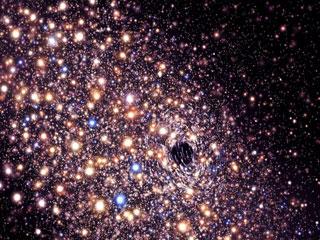
This artist's conception illustrates Kepler-22b, a planet known to comfortably circle in the habitable zone of a sun-like star. Image credit: NASA/Ames/JPL-Caltech.
WASHINGTON (AFP): In another step toward finding Earth-like planets that may hold life, NASA has said the Kepler space telescope has confirmed its first-ever planet in a habitable zone outside our solar system.
French astronomers earlier this year confirmed the first rocky exoplanet to meet key requirements for sustaining life.
But Kepler-22b, initially glimpsed in 2009, is the first the US space agency has been able to confirm.
Confirmation means that astronomers have seen it crossing in front of its star three times. But it doesn't mean that astronomers know whether life actually exists there, simply that the conditions are right.
Such planets have the right distance from their star to support water, plus a suitable temperature and atmosphere to support life.
"We have now got good planet confirmation with Kepler-22b," said Bill Borucki, Kepler principal investigator at NASA Ames Research Center.
"We are certain that it is in the habitable zone and if it has a surface, it ought to have a nice temperature," he told reporters on Sunday.
Spinning around its star some 600 light years away, Kepler-22b is 2.4 times the size of the Earth, putting it in class known as "super-Earths," and orbits its Sun-like star every 290 days.
Its near-surface temperature is presumed to be about 72 degrees 22 Celsius. Scientists do not know, however, whether the planet is rocky, gaseous or liquid.
The planet's first "transit," or star crossover, was captured shortly after NASA launched its Kepler spacecraft in March 2009.
NASA also announced that Kepler has uncovered 1,094 more potential planets, twice the number it previously had been tracking, according to research being presented at a conference in California this week.
Kepler is NASA's first mission in search of Earth-like planets orbiting suns similar to ours, and cost the US space agency about USD 600 million.
It is equipped with the largest camera ever sent into space -- a 95-megapixel array of charge-coupled devices -- and is expected to continue sending information back to Earth until at least November 2012.
Kepler is searching for planets as small as Earth, including those orbiting stars in a warm, habitable zone where liquid water could exist on the surface of the planet.
The latest confirmed exoplanet that could support life brings to three the total number confirmed by global astronomers.
 Previous Article
Previous Article Next Article
Next Article












The Indian Air Force, in its flight trials evaluation report submitted before the Defence Ministry l..
view articleAn insight into the Medium Multi-Role Combat Aircraft competition...
view articleSky enthusiasts can now spot the International Space Station (ISS) commanded by Indian-American astr..
view article